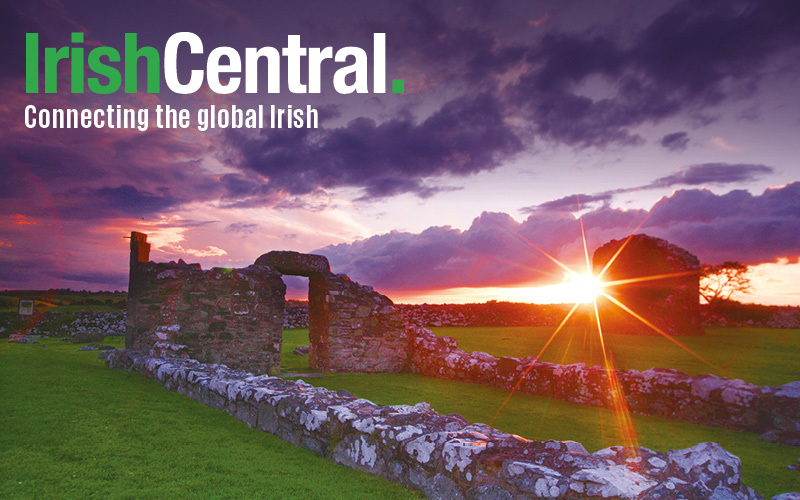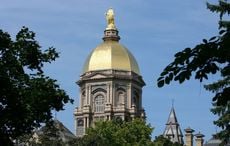You know who Fr. Duffy is, right? (If you don't, well, we need to remedy that. You can get a snippet here.) Anyway, the Royal Dublin Fusiliers had their own Fr. Duffy during World War I. He was Fr. Willie Doyle, a Jesuit priest originally from Dalkey, Co. Dublin, who was a hero to the men of the 16th (Irish) Division in the British Army just as Fr. Duffy was a hero among the men of the Fighting 69th later in the war.
Fr. Doyle's first taste of combat was at Loos in France in the spring of 1916 at the same battle where, I believe, my wife's great-grandfather was killed. From the first day his unit went into battle Fr. Doyle looked after the troops with no regard for his own welfare. He brought them water and ministered to them: hearing their confessions, saying Mass for them and, frequently, dashing out into danger to give a dying man last rites. He also risked his life to help retrieve wounded soldiers.
In this more comfortable and cynical age it's difficult to appreciate how important Fr. Doyle was to the men of the 16th Division. They were predominantly Catholic and much more committed to their faith than today's average Catholic. And that was before they were stripped of all worldly comforts and forced to live in trenches and face bullets, shells and poison gas.
General Hickie, commander of the 16th Division, wrote of Fr. Doyle: "[m]any a dying soldier on that bloody field has flashed a last look of loving recognition as our brave padre rushed to his aid, braving the fearful barrage and whistling machine-gun bullets, to give his boy a last few words of hope."
Hickie also said that Fr. Doyle was "one of the bravest men who have fought or served out here." Fr. Doyle was awarded the Military Cross for his bravery during the 16th Divsion's assault on Ginchy during September 1916 during which thousands of Irishmen were killed.
Fr. Doyle was killed on August 16, 1917 during the infamous Battle of Passchendaele. Like thousands of others who died in that muddy hell-hole, Fr. Doyle's body was never identified.
Perhaps the greatest testimony to Fr. Doyle's commitment to the Irishmen who fought and died in WWI comes from this anonymous Ulster Protestant who wrote to the Glasgow Weekly News after Fr. Doyle's death.
Fr. Doyle was a good deal among us. We couldn't possibly agree with his religious opinion, but we simply worshipped him for other things. He didn't know the meaning of fear, and he didn't know what bigotry was. He was as ready to risk his life to take a drop of water to a wounded Ulsterman as to assist men of his own faith and regiment. If he risked his life in looking after Ulster Protestant soldiers once, he did it a hundred times in the last few days. . . . The Ulstermen felt his loss more keenly than anybody, and none were readier to show their marks of respect to the dead hero priest than were our Ulster Presbyterians. Fr. Doyle was a true Christian in every sense of the word, and a credit to any religious faith. He never tried to get things easy. He was always sharing the risks of the men, and had to be kept in restraint by the staff for his own protection. Many a time have I seen him walk beside a stretcher trying to console a wounded man with bullets flying around him and shells bursting every few yards.
Father Doyle was recommended for a Victoria Cross, the highest honor for a soldier in the British Army, but it was denied because, according to his biographer, the "triple disqualification of being an Irishman, a Catholic and a Jesuit, proved insuperable."
It's well past time that this is put right. He should get that Victoria Cross now (if that's possible, I have no idea). More importantly, he should be honored in Dublin. New York has Fr. Duffy Square, but there is no Fr. Doyle Square or even Fr. Doyle Street in Dublin. There should be.




Comments